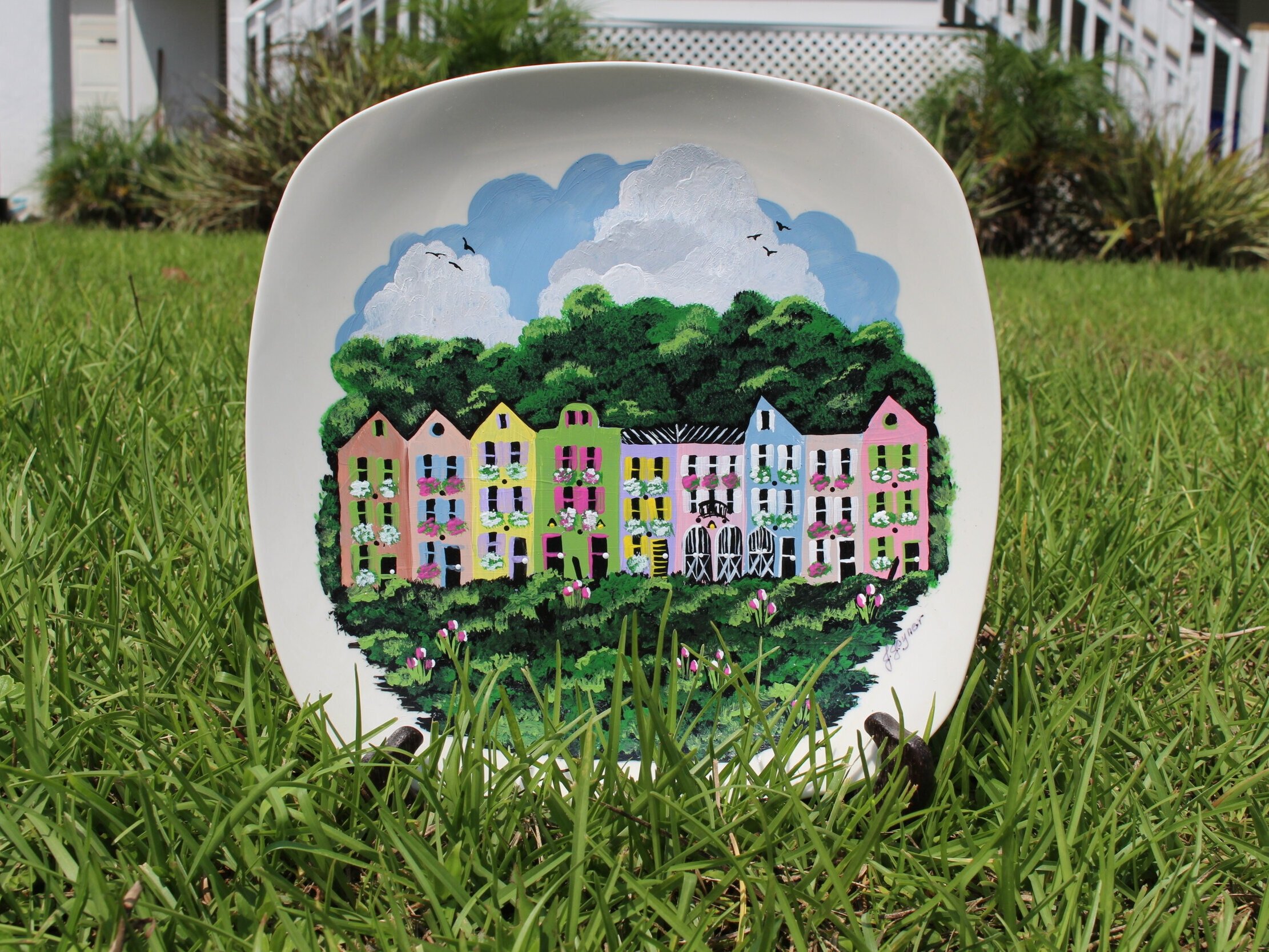
Shop & Such
Aenean lacinia bibendum nulla sed consectetur. Donec ullamcorper nulla non metus auctor fringilla. Duis mollis, est non commodo luctus, nisi erat porttitor ligula, eget lacinia odio sem nec elit. Donec id elit non mi porta gravida at eget metus. Cum sociis natoque penatibus et magnis dis parturient montes, nascetur ridiculus mus.
Rainbow Row Square Plate
Rainbow Row Square Plate
- From the green to the blue to the original pink… This piece of Charleston street is a real dish!
- Hand-painted Square Ceramic Plate
- Each piece is one of a kind created with acrylic paint
- DECORATIVE USE ONLY
- Approx. 8" x 8" x 1".
A Brief History of the Shrimp Boat
A wise man named Bubba once said…“Shrimp is the fruit of the sea. You can barbecue it, boil it, broil it, bake it, sauté it. Dey's uh, shrimp-kabobs, shrimp creole, shrimp gumbo. Pan-fried, deep-fried, stir-fried. There's pineapple shrimp, lemon shrimp, coconut shrimp, pepper shrimp, shrimp soup, shrimp stew, shrimp salad, shrimp and potatoes, shrimp burger, shrimp sandwich. That- that's about it.”
While these delicious dishes can be found all over Charleston and are where this abundant food supply might end up, the real question is: Where do the shrimp come from?
While as an individual you might head towards the shallow, muddy waters during low tide and clumsily toss off circular nets into the murky tides, commercially speaking you’re going to need a bigger boat. A specific boat though called a trawler.
Once out in the wide blue yonder, trawler nets are unraveled, outrigger booms are lowered into position and for around 4-5 hours, the wide mesh span of the trawl net drags below the boat and along the floor of the harbor. Once reeled in and over the boat, the catch is released and must be sorted through.
Shrimp Trawlers pull in more than just shrimp... small fish including whiting and flounder, crabs, stingrays, many cannonball jellyfish, blowfish and even seashells. The net’s filter pushes out anything over three inches as protection for sea turtles. 45,000 pounds of shrimp! That’s about how much a single shrimp boat can haul.
While some things like hunting season are only open once a year, due to the many different kinds of shrimp, the season for this activity is a little more complex in South Carolina.
In May or June, you have what are called roe shrimp; roe being the fertilized external egg mass from the shrimp. This season is the shortest coming in at only about a month long. Brown shrimp season makes up the second season, generally starting in June and ending sometime in August. The brown shrimp, identified by their color and strong flavor palate, are some of the most common of the shrimp species. Then there are the very sweet white shrimp, which comprise most of what comes out of the South. Their season overlaps that of the brown and can last until early January.
Like the shifting sands in the shallow waters of the Charleston area, the proverbial climate for this industry has its ebbs and flows. Debate Climate Change all you want, a little too hot one year, too cold the next, the shrimping industry can be thrown wildly out of sync.
Shrimp are cheap, right? So, how much is the shrimping industry really worth? The average annual salary for a shrimp boat captain is estimated to be $70,500. Even though individual shrimp can be relatively inexpensive, the commercial industry on the whole nets tens of billions of dollars every year. Now that’s a whale of a sum – pun intended!
You can walk ten feet and get twenty different answers to find out who has the best seafood in Charleston though. Everyone’s got an opinion on where and how: ranging from all of the hottest spots on Shem Creek to the niche-iest diners Downtown, and from raw to broiled or fried or boiled. Everyone’s grandma has a specific recipe that was passed down from their grandpappy on how to prepare these delicious miniature sea creatures.
All in all, if you decide to take a dive off the Carolina coast or go wading through the shallow shoals and you see or feel something skitter across your toes, smile. If you move fast enough you might just be able to catch that night’s supper.
~ Brandon L. Joyner













